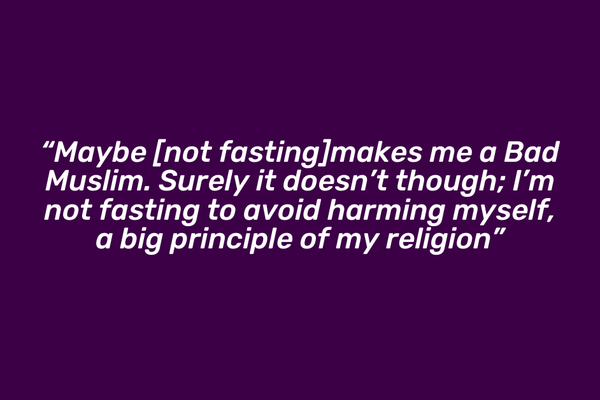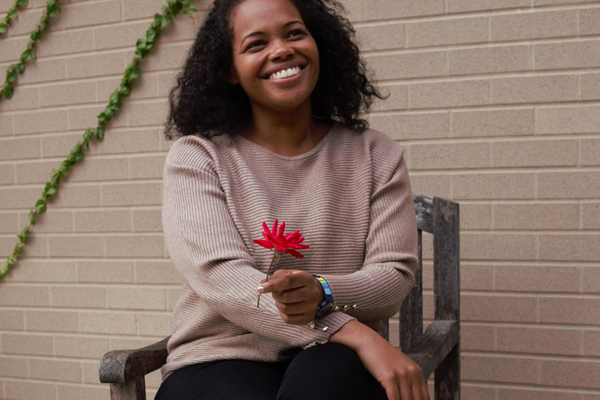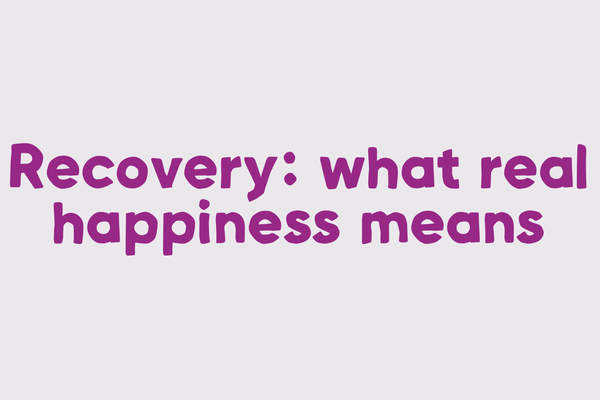Before I continue, I must highlight that I am no scientist. I am simply a nature-obsessed, dungaree-wearing art lover. But even in my un-biologist state of being, I know that living things, big or small, are unimaginably inspiring. There are monkeys and pigeons and leopards and chameleons and snails and clown fish and dolphins and frogs and polar bears. But above all, the creatures that really get me buzzing are bees. They are like tiny teachers, for every time I leave a garden after watching them, I learn something new.
The melodies of bird song; the crunching of twigs beneath overgrown bushes; the gentle patter of raindrops bouncing off leaves; the familiar buzz of bees circling the garden in search of their energy source. The latter is my favourite, and while the bee is an outwardly small wonder of nature, they have been a huge inspiration to me during my recovery.
My eating disorder stole a lot from me. In fact, if my ED was a person, they would likely be listed under the ‘Most Wanted’ documents of criminal offenders, convicted of all kinds of robbery. But despite this, recovery has gifted me with so much more than I lost. I am so grateful for all that recovery has provided me so far. I have met the most incredible people, developed healthier relationships with loved ones, re-discovered my values and beliefs and passions, learned valuable coping skills, learned to understand my thoughts and feelings, re-connected with the world around me, plus so much more. One aspect of nature I have connected with greatly is its friendly pollinators: bees.
Bees helped show me that eating is nothing to feel guilty about. Eating is essential for their survival, and food helps give them the energy they need to fly; something that is believed to be aerodynamically impossible. With food they are able to dance across the sky, to pollinate our planet, to care for their queen and to ensure the next generation have the best chances of survival.
Despite appearing seemingly small and insignificant, the humble bee is worth more than words could ever comprehend, and the only way they are able to continue tending to the planet we share with them is by eating and caring for themselves. We accept this and the reason they need to eat may seem quite simple and obvious. However, it can be difficult to apply this logic to ourselves, to understand that we need food and nourishment and love as well. Particularly with eating disorders, our illness may tell us all sorts of lies about food and/or exercise. It may even tell us that we are unworthy of food, or unworthy of enjoying food. It all gets a bit hard to deal with. I often struggle to understand my own ED or identify where my thoughts are coming from (ED or myself).
Yet, like bees and every other living organism, I know deep down that I deserve to eat too, I deserve to care for myself, to nourish my body and give it want it wants or needs. You do too. Like bees, we are each worthy of love, life, energy, and all the sweet things that bring us joy in life. For me, these sweet things are my family and friends, my dog Toby, my pencils, my Doc Martens, my fluffy blanket and my dungarees. My honey is recovery, because working hard and fighting my ED has given me so much more than I lost.
With recovery, I have gained the strength to do what I believed was impossible. I have experienced how it feels to fly, to be free from the walls I built around myself.
But this journey is not always smooth-sailing. In a similar way to how flowers do not bloom all year round, I do not always feel positive, hopeful or motivated about recovery. EDs are complicated and difficult to understand. The psychological functions that an ED may serve are often complex, and while recovery can offer the opportunity to gain our lives back, the process also means letting go of a deeply ingrained coping mechanism that we may not yet know how to replace.
In some ways, recovery could be likened to being stung by a bee. It hurts. The pain ebbs and flows. Stinging sensations eventually recede, relief replacing the hurt. Finally, the sting starts to heal. But just as you begin to see the redness fade around the punctured wound, another bee jabs its spiky, miniscule sword into your skin. The pain returns, and the process continues over and over.
We notice the pain because we have developed nerves and pain receptors to help us survive. But what we may not notice is that we become more immune to insect stings the more we get stung. We become better able to deal with scary bug encounters. Similarly, recovery is painful; and sometimes when we have made lots of progress, we are suddenly knocked back and stung again, leaving us feeling hopeless and weak, labelling ourselves as failures. But these setbacks do not make us weak and they are certainly not evidence that we should give up. Struggling does not mean that all the work we have done so far has been for nothing, or that we are not worthy of building a healthy life for ourselves. One of my favourite quotes is ‘progress, not perfection’. These three words speak volumes.
How is this relevant to ED recovery? Well,
Treating my body and my mind with compassion, kindness,
No bird continues its flight forever. No flower blooms all year round. No fruit remains ripe for eternity. No sun shines without ever a cloud.
Contributed by Leah
"I used to fast for all the wrong reasons" - Ayisha's Ramadan recovery story
11 March 2024Our supporter Ayisha explores her experiences of navigating Ramadan while in recovery from her eating disorder
My only regret about treatment is that I didn’t access it sooner
11 January 2022I'd never considered that I had an eating disorder, but the way I was treated by my GP was how I ended up getting treatment.
Recovery: what real happiness means
5 January 2022By choosing recovery, you will give to yourself the best chance to find your real happiness.


